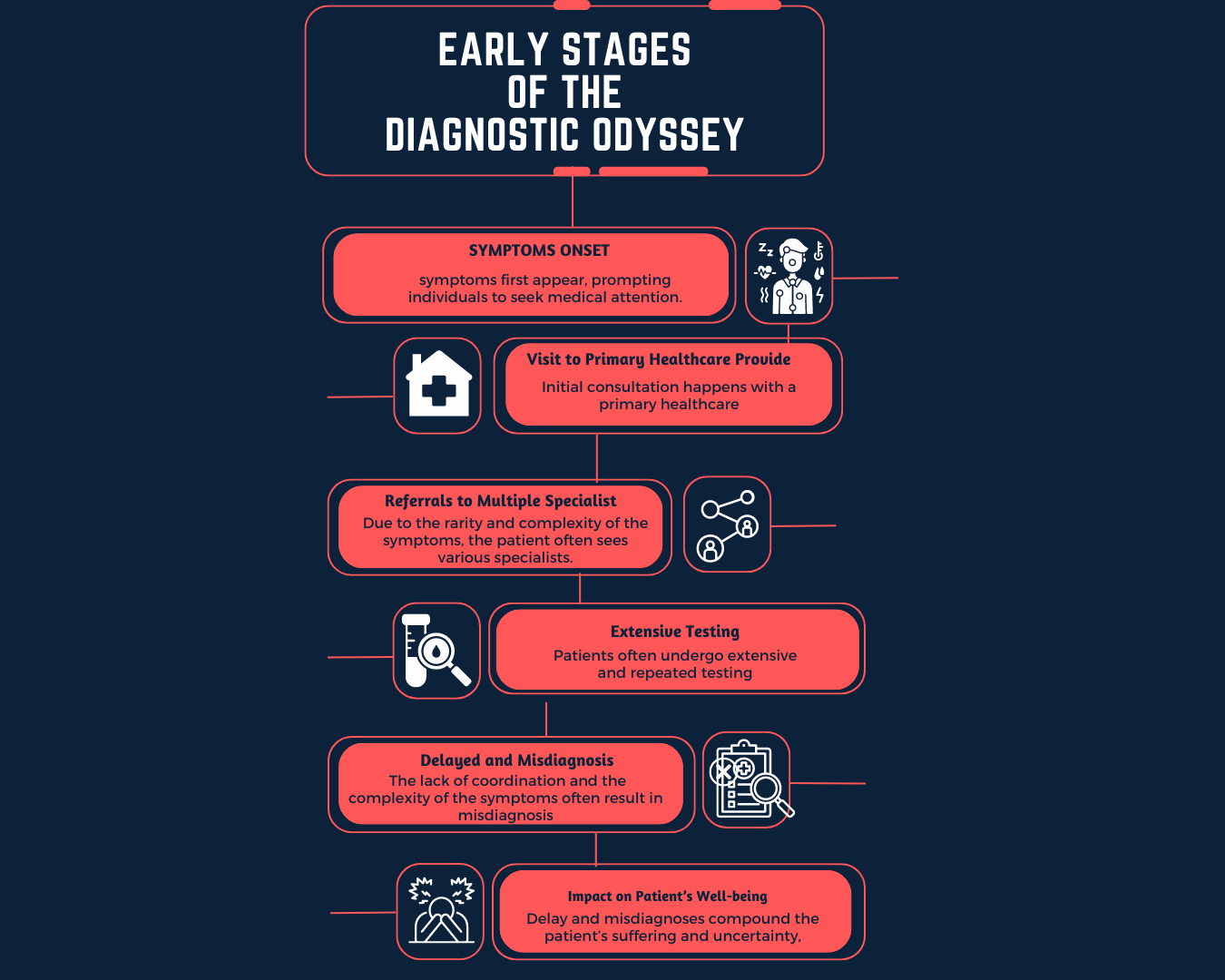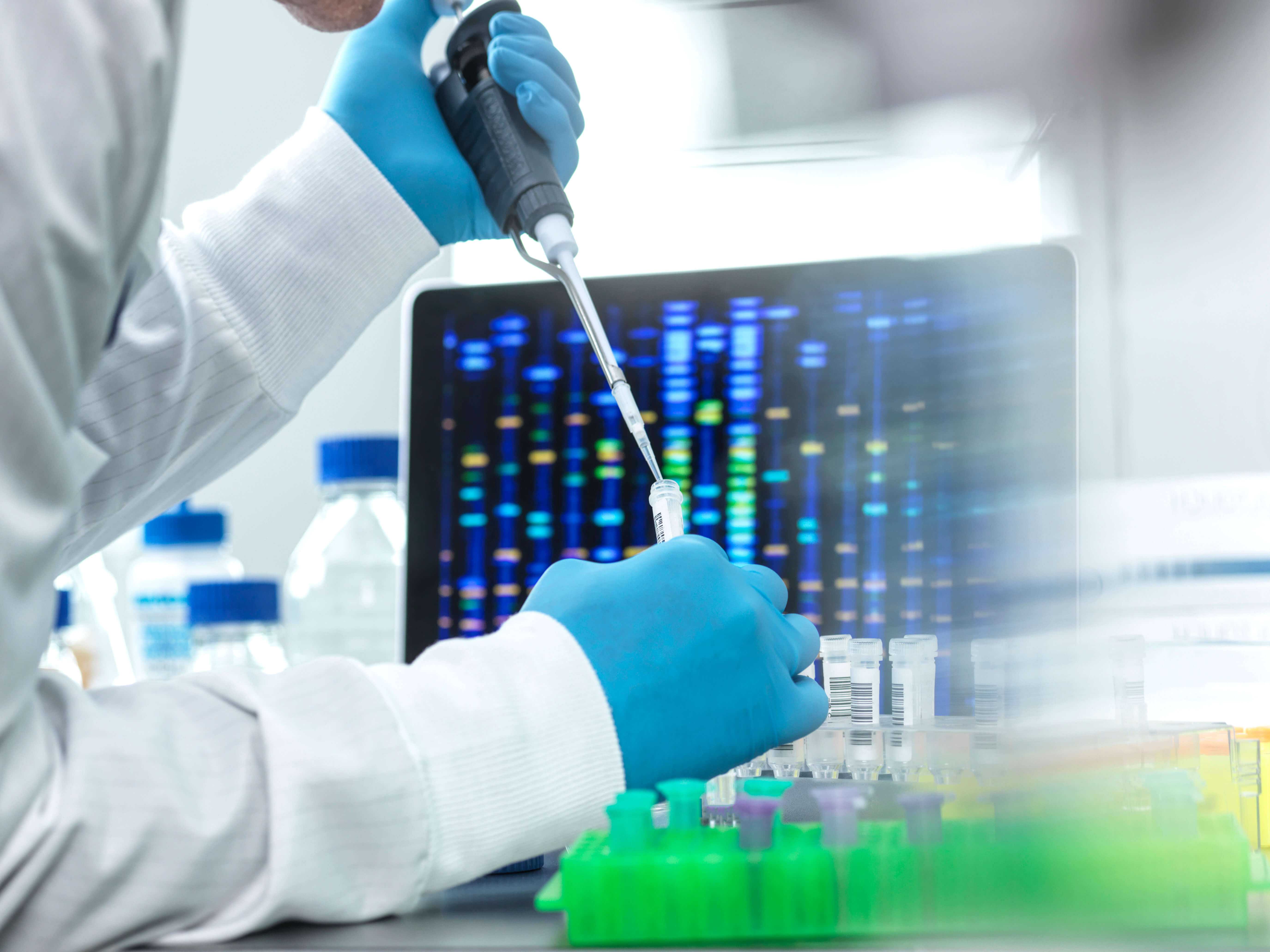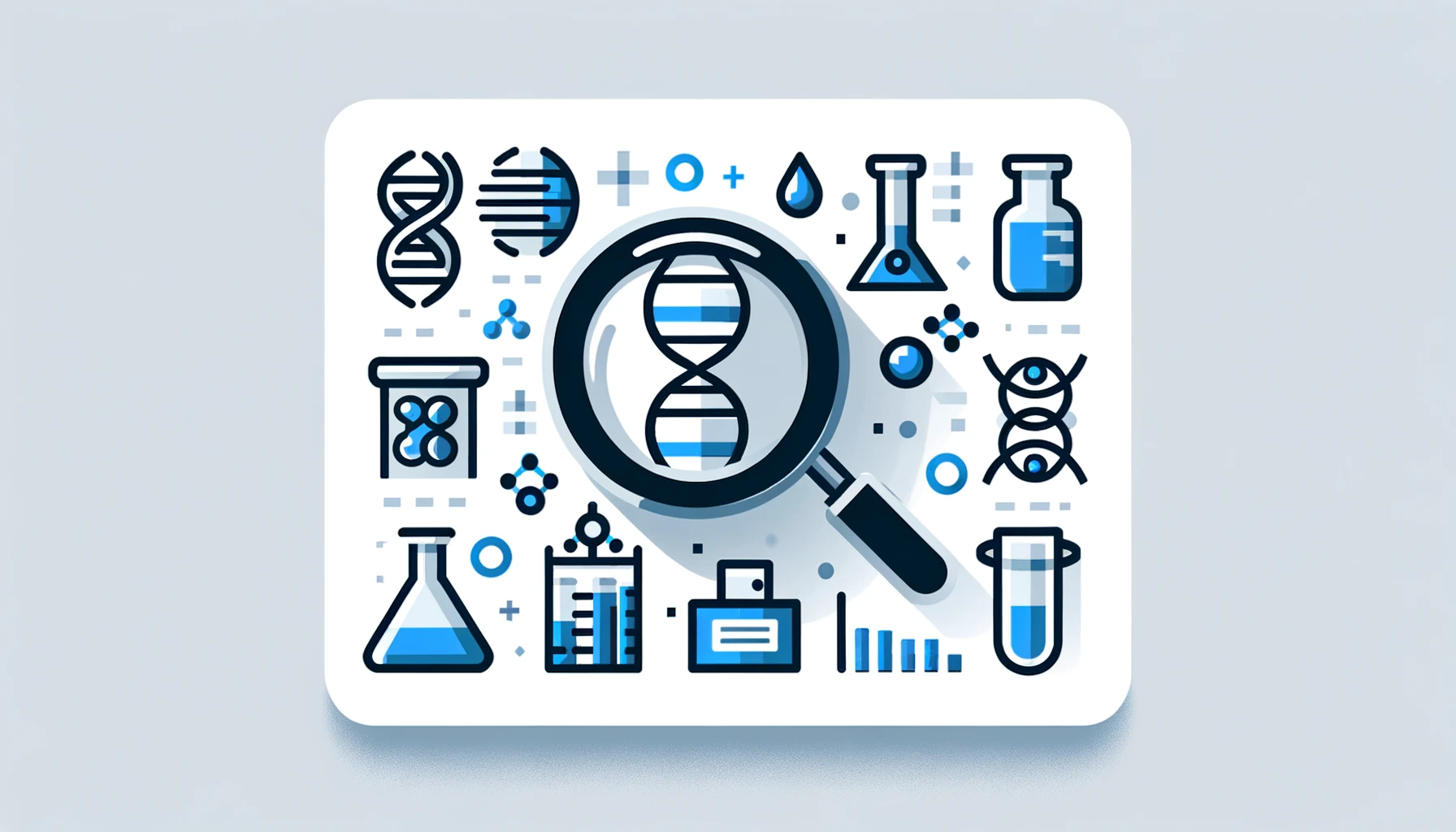Genetic disorders are a complex and diverse group of medical conditions that result from abnormalities in an individual's genetic material. Our genes, carried in our DNA, determine the development and functioning of our bodies. When changes or mutations occur in this genetic code, it can lead to a wide range of health problems.
In this article, we will look at what genetic disorders are, the types and most common disorders, and the importance of diagnosis.

What are genetic disorders?
Genetic disorders are a diverse group of medical conditions that result from abnormalities in an individual's genetic material. Our genes, contained in the DNA of our cells, serve as the blueprint for how our bodies develop and function. When there are changes or mutations in this genetic code, it can lead to a wide range of health problems. As an expert marketer and biologist, you are well placed to explore and explain the intricacies of genetic disorders to a wider audience.
These disorders can manifest themselves in a variety of ways, affecting physical characteristics, mental abilities and susceptibility to certain diseases. Some genetic disorders are present at birth, while others develop later in life. Understanding the causes and effects of genetic disorders is important for individuals, families and healthcare professionals.
Types of genetic disorders
Genetic disorders can be categorized into several main types.
- Single-Gene Disorders (Monogenic Disorders)
- Chromosomal Disorders
- Multifactorial Disorders
- Mitochondrial Disorders
- X-Linked Disorders (Sex-Linked Disorders)
Common genetic disorders

Cystic Fibrosis
Cystic fibrosis is a genetic disorder that primarily affects the respiratory and digestive systems. It is caused by mutations in the CFTR gene, leading to the production of thick and sticky mucus that can clog the airways and cause recurrent lung infections. Common symptoms include persistent cough, lung infections, and digestive problems. While there is no cure, innovative therapies and treatments have significantly improved the quality of life for those with cystic fibrosis.
Down Syndrome
Down syndrome, also known as trisomy 21, is one of the most recognizable genetic disorders. It arises from an extra copy of chromosome 21 and results in developmental delays, intellectual disabilities, and distinct physical features. Early intervention programs, educational support, and inclusion initiatives play a crucial role in enhancing the lives of individuals with Down syndrome.
Huntington's Disease
Huntington's disease is an autosomal dominant genetic disorder caused by a mutation in the HTT gene. This condition leads to the progressive breakdown of nerve cells in the brain, resulting in various physical and cognitive symptoms. Currently, there is no cure, but research efforts are ongoing to find potential treatments and therapies for managing the condition and improving the quality of life for affected individuals.
Sickle Cell Disease
Sickle cell disease is a group of inherited blood disorders that affect haemoglobin, the oxygen-carrying protein in red blood cells. People with sickle cell disease have abnormally shaped red blood cells, leading to vaso-occlusive crises, anemia and organ damage. Treatment typically involves pain relief, blood transfusions and, in some cases, stem cell transplants.

Hemophilia
Hemophilia is a genetic disorder characterized by impaired blood clotting due to mutations in the F8 or F9 genes. People with hemophilia are at risk of prolonged bleeding, which can be life-threatening. Treatment involves replacing the missing clotting factor through infusions, enabling those with hemophilia to lead relatively normal lives.
Diagnosis and Genetic testing
Accurate diagnosis of genetic disorders is essential for effective treatment. Genetic testing is a key tool in identifying specific mutations or abnormalities. This can include DNA sequencing, karyotyping and chromosomal microarray analysis. Early diagnosis allows for timely intervention and personalised treatment plans.
Types of Genetic Testing
- Molecular Genetic Testing
This type of testing analyzes single genes or short sequences of DNA to identify mutations or variations. It is commonly used in single-gene disorders like cystic fibrosis or Huntington's disease. - Chromosomal Testing
Chromosomal testing examines whole chromosomes or segments of chromosomes to detect large-scale abnormalities, such as Down syndrome or Turner syndrome. - Biochemical Testing
This type of testing assesses the activity of enzymes or proteins, often by analyzing blood or urine samples. It is crucial for detecting metabolic disorders like phenylketonuria (PKU). - Genomic Sequencing
High-throughput sequencing technologies, such as next-generation sequencing, allow for comprehensive analysis of an individual's entire genetic code (genome). Whole-genome sequencing and whole-exome sequencing are two examples.























